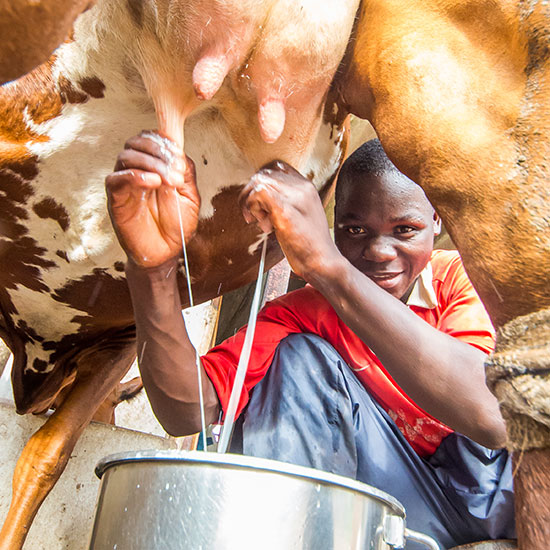DAIRY and cereal company, Nestle Zimbabwe, says it has committed to promote entrepreneurship in dairy farming through the Nestle Dairy Empowerment Scheme (NDES).
The NDES programme was introduced in 2011 to resuscitate the dairy value chain and focuses on empowering commercial and small-scale farmers to boost the country’s economy and improve people’s lives.
Speaking at the World Milk Day celebrations in Marondera last week under the theme “Sustainability in the dairy sector, as well as environmental, nutritional and socio-economic empowerment”, Nestle Zimbabwe managing director Luke Gomes said the scheme was aimed at increasing milk output and reducing production costs to minimise the importation of milk while capacitating local farmers.
“We have assisted dairy farmers to drive our agripreneurship and sustainability strategy through establishment of milk collecting centres, the provision of cooling tanks, solar powered boreholes to address water challenges for irrigation, pasture and silage support to reduce commercial feed requirements which accounts for over 65 percent of the production cost.
“Chitomborwizi was supported with four solar-powered boreholes and Agro Prosperity currently has one while a solar powered cooling system was established to reduce reliance on electricity and diesel for power generation.
“We support our dairy farmers and farming partners to have the Agripreneurship mindset. Agripreneurship aims at accelerating the development of capable and willing farmers to grow their farming skills, competences and business management thus driving sustainability and at a large scale creating economic opportunities and social impact in rural communities, which is not only speaks to our Nestlé vision and purpose but also resonates and aligns with this year’s world milk day theme,” Gomes said.
He added that through its first small scale networks in Chitomborwizi, Watershed and Agro Prosperity, monthly milk production had made a significant improvement.
“We tested this approach seven years ago with our first small scale farmer network in Chitomborwizi, where we anchored 21 small scale farmers around a major commercial farmer.
“We helped our first small scale network by importing 100 in calf dairy cows, which were subsequently dispersed to small-scale farmers( 70 cows) and the anchor farmer (30 cows).
“In March 2016, the first milk delivery of about 4000l from Chitomborwizi to the Nestlé Harare Factory was made. The Chitomborwizi herd for the small-scale farmers has expanded to over 360 cows, which supply the factory with 46000l monthly.”
Gomes added that building on the success of Chitomborwizi, Nestlé Zimbabwe had moved on to build two other farmer networks.
“Agroprosperity Trust’s first milk collection was less than 100l, but they now collect 7 000litres per month and hope to increase to 40 000litres per month by the end of 2021. More than 80 independent small-scale farmers work in these three small-scale centres,” he said.
“Since the launch of NDES 10 years ago, we have made considerable investments in the programme, both in terms of financing and knowledge transfer.
“Consequently, we have witnessed an encouraging year-on-year improvement in both the amount and quality of milk produced. Our Harare factory has the capacity to process 45 million litres of milk annually.”




